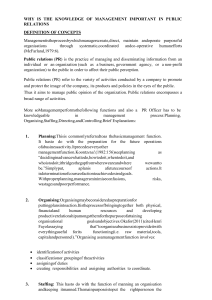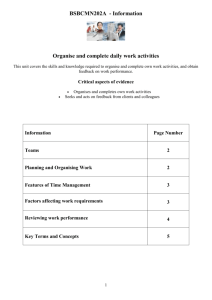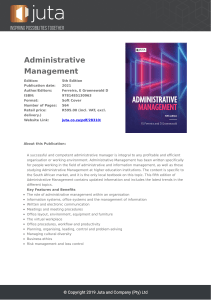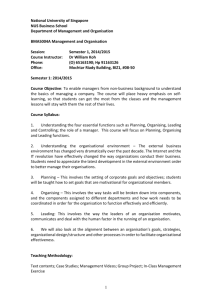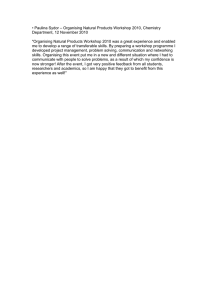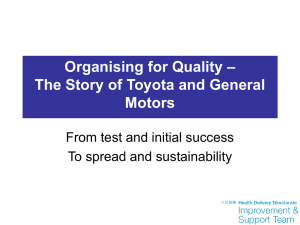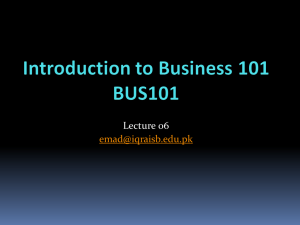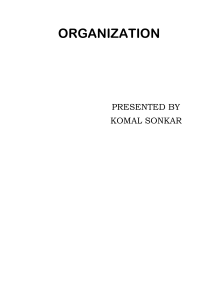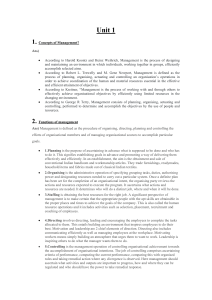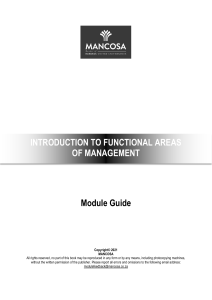Organisational Skills Training Becoming more organised Sydney Brisbane Melbourne Perth Adelaide Canberra Geelong Parramatta
advertisement
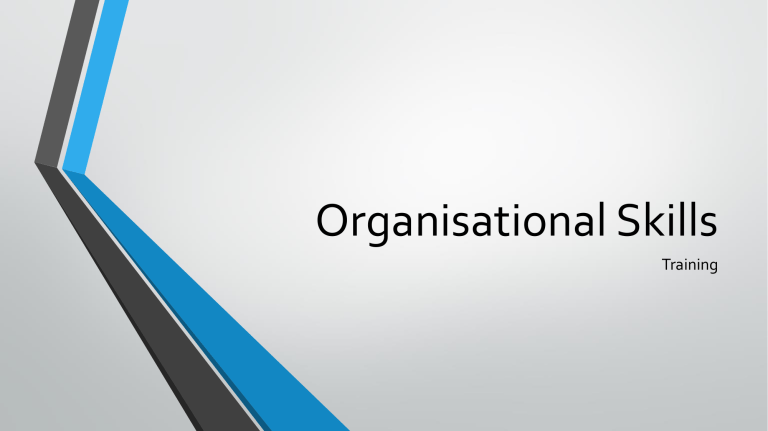
Organisational Skills Training Are you Organised? • • • • • • • Are you in control of everything you need for your job? Is the right information always at your fingertips? Do you have a clear plan of action every day? Or maybe your desk looks like it's been hit by a bomb and you're drowning in emails. You're in danger of missing a deadline, your important files are never where you thought they were, and it's a lottery whether you'll even have clean clothes to wear for work in the morning! Organizational skills are skills that allow you to use your resources efficiently and effectively. Being organized means you manage your time, energy and workspace well and can accomplish all your assigned tasks successfully. Organizational skills can take different forms depending on your particular workplace and job title, but they typically involve maintaining an orderly workspace, meeting deadlines and communicating well with your team. Your ability to organize yourself has a major impact on your success, and it can have a knock-on effect on your team members and co-workers, too. Organisation is an important aspect in play, language, social interaction, personal management (e.g. self-care tasks or bringing home all their belongings from school) and academic task performance (e.g. homework, project planning and performance). Organisation is typically a skill that needs to be specifically modeled, supported by sensible structures (such as diaries or visual charts, labelled storage containers) and reinforced by realistic routines (pack away one toy/task before commencing another). Organisation is important to develop a structured and consistent approach to tasks at all times, but is even more important for those with poor planning and sequencing, language challenges, attention difficulties and learning difficulties. Types of Skills Being organized in the workplace involves using a range of important skills, including: • • • • • • • • Time management Communication Setting goals Delegation Scheduling Resource Allocation Prioritizing Collaboration Benefits • • • • You can lose a great deal of time to disorganization. A minute here to find your keys, another there to track down an email… Those minutes quickly mount up to hours of lost productivity. And even if you do manage to get everything done, you likely won't have produced your best work. The core benefits of being organized and operating in a generally clutter-free environment are increased productivity and improved performance. And with those comes a greater sense of control, which is a vital part of stress management resilience overall well-being Good organization can also lead to better thinking. Decision making problem solving rely on a clear head, plus ready access to the right information and tools. An uncluttered approach improves concentration and your ability to learn, and it puts you on the right track toward the state of deep focus known as " flow Success at work also has a lot to do with how you're seen by others. If you're regularly late for meetings, careless with your responsibilities, and seem out of control in your role, your reputation – and your chances of career progression – are at risk. However, if you show yourself to be someone who manages their workload well, and can be relied on to help to make your organization or team run more smoothly, your competence and value will be clear for everyone to see. Organisational Skills for Students • • • • • • • Organising your learning is about developing good habits and approaches towards your study, to ensure that you are able to smoothly and successfully complete assignments and exams. Ensure you understand the course content as you go, rather than cramming at the end of semester. A common mistake students make is to spend the university session attending lectures and tutorials, and completing assignments as they are due, but failing to do any sort of revision throughout the session until exam time. If there's something that you don't completely understand, make sure you seek help sooner rather than later. Identify your learning style Identify how you tend to learn best and use this to your advantage when studying. Using approaches that work best for you, such as writing out notes, creating mind-maps, using flash cards or reciting out loud, can assist with the effectiveness of your revision. Identify techniques to help you overcome procrastination, so that you can get more done. Some of the tips mentioned in this resource, such as breaking down large tasks into sub-tasks, and mono-tasking rather than multi-tasking, can help change your study habits to reduce procrastination. Most of what's described here is about organising yourself, and keeping your work or life under control. The same principles apply to organising anything, from a family through to a project or event. Most crucially, taking time on a regular basis to think about what you've got to do and when, and in particular what's time-limited, will really pay dividends.
